Goal Manager® Help
If you are using Goal Manager® for the first time, take advantage of our free videos on the Support Space. See here.
Goal Attainment Scaling is a method of scoring the extent to which patient’s individual goals are achieved in the course of intervention. In effect, each patient has their own outcome measure but this is scored in a standardised way as to allow statistical analysis. Traditional standardised measures include a standard set of tasks (items) each rated on a standard level. In GAS, tasks are individually identified to suit the patient, and the levels are individually set around their current and expected levels of performance.
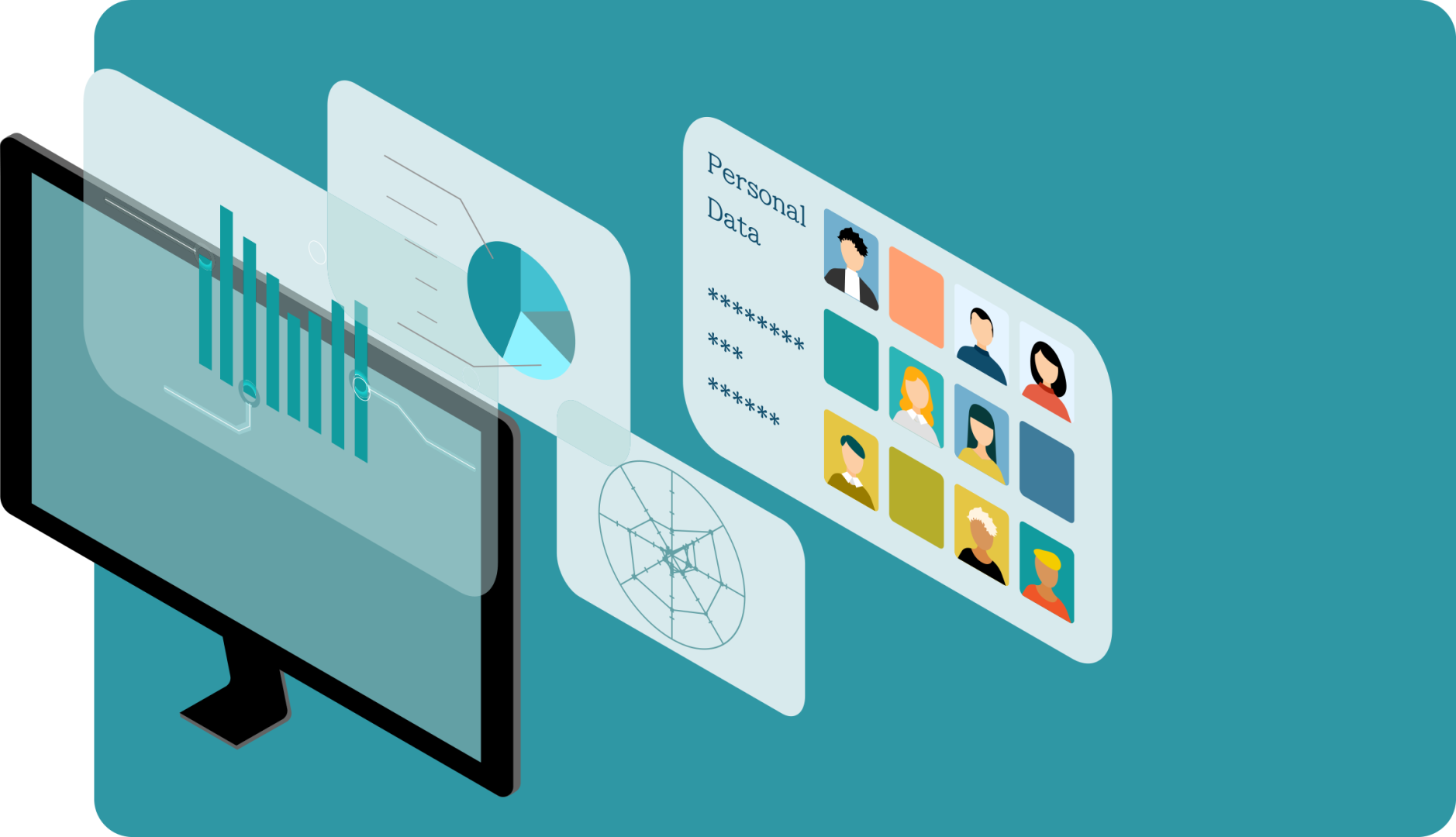
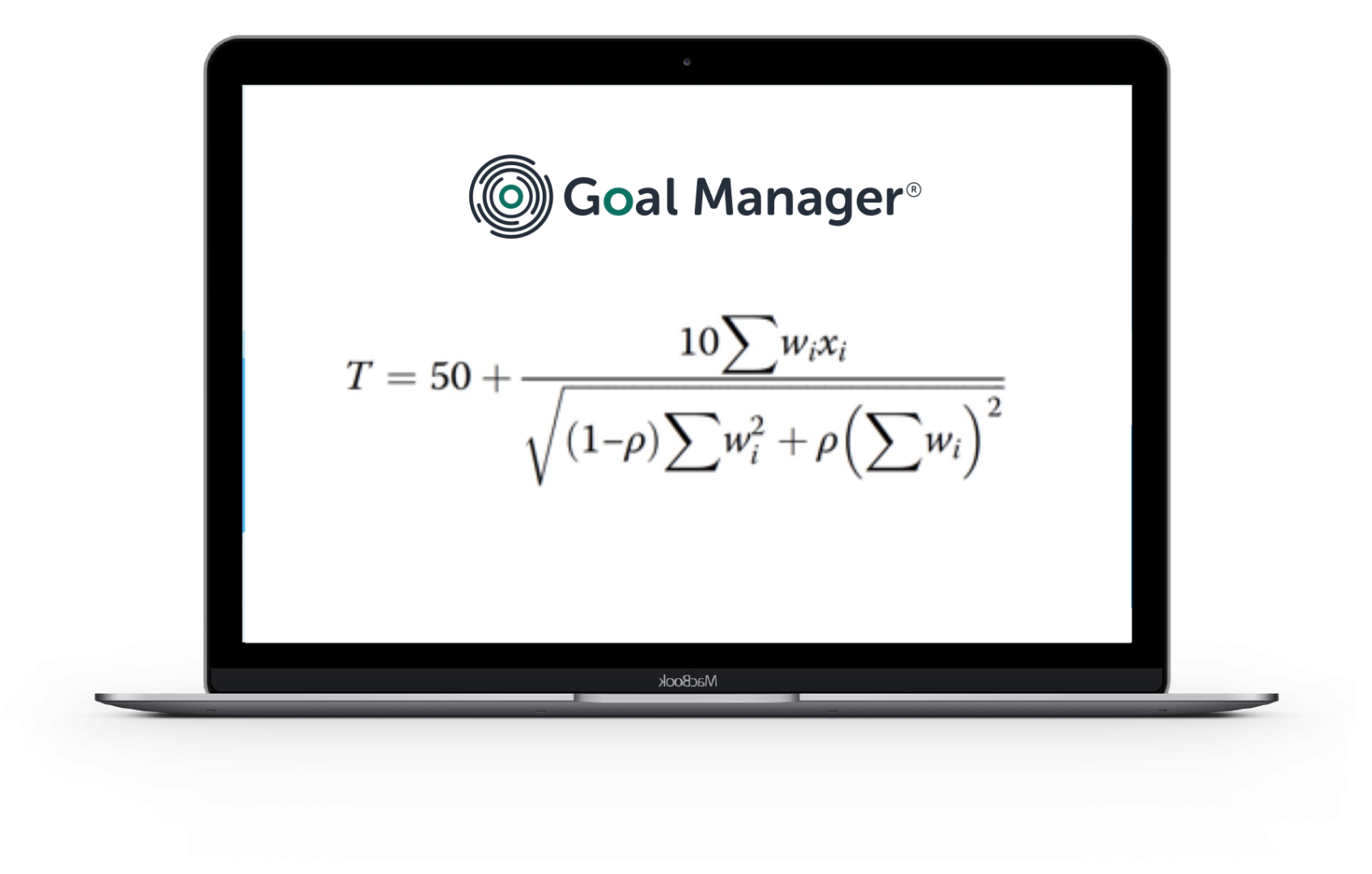
Goal attainment scaling (GAS) is an individualised health outcome measure that was first introduced by Kirusek and Sherman (1968) for assessing outcomes in mental health settings. This technique is found to be suitable for health problems which warrant a multidimensional and individualised approach to treatment planning and outcome measurement and has been used to demonstrate clinically important change in a variety of settings including elderly care (Stolee, Stadnyk, et al 1999; Stolee, Zaza, et al 1999), chronic pain (Zaza, et al 1999) and cognitive rehabilitation (Rockwood, et al 1997).
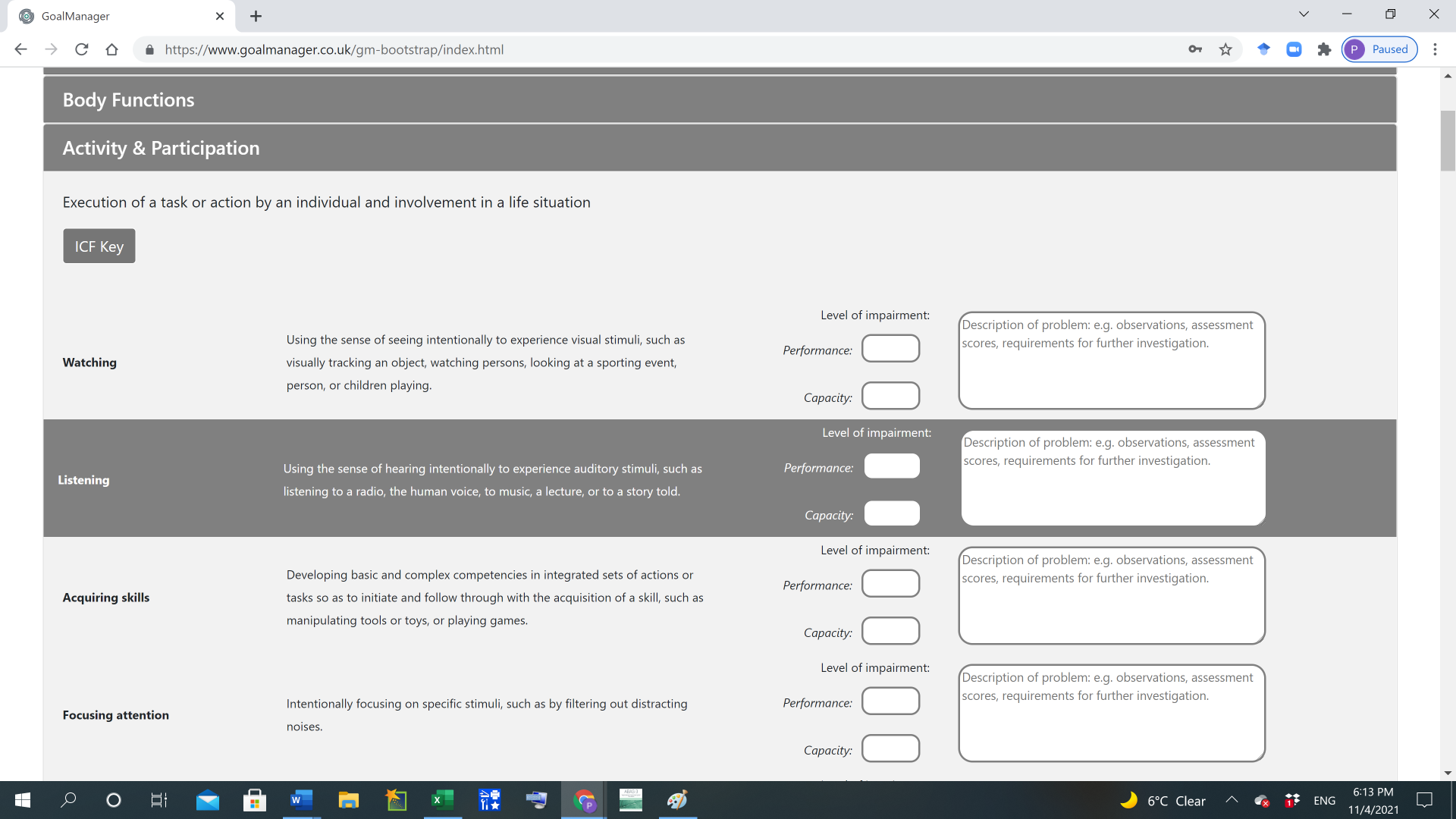
Formal assessment of goal attainment at the point of outcome assessment could provide an accurate indication of success in relation to the intended goals of treatment, both on the part of the patient and the clinician. The application of Goal Attainment Scaling also offers the opportunity of a single interval measure with which to assess response to intervention. This work began with the assessment of botulinum toxin intervention outcomes and has then developed for use in the wider inpatient rehabilitation environment.
Goals may be weighted to take account of the relative importance of the goal to the individual, and/or the anticipated difficulty of achieving it.
GAS depends on two things – the patient’s ability to achieve their goals and the clinician’s ability to predict outcome, which requires knowledge and experience. A computerised programme calculates the baseline score, the T Score (achieved score) and change score. This is available as a stand alone Excel file or within the UKROC software.
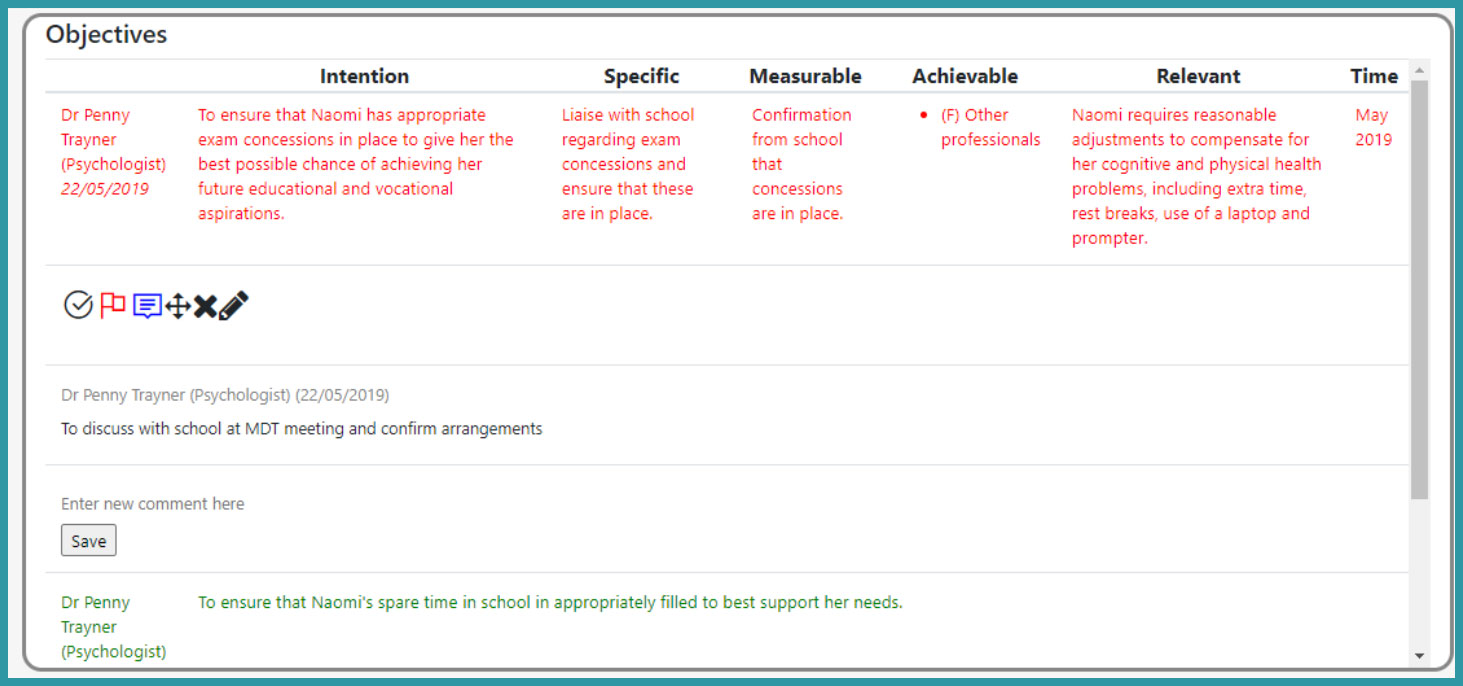
An important feature of GAS is the ‘a priori ‘ establishment of criteria for a ‘successful’ outcome in that individual, which is agreed with the patient and family before intervention starts so that everyone has a realistic expectation of what is likely to be achieved, and agrees that this would be worth striving for. Each goal is rated on a 5-point scale, with the degree of attainment captured for each goal area:
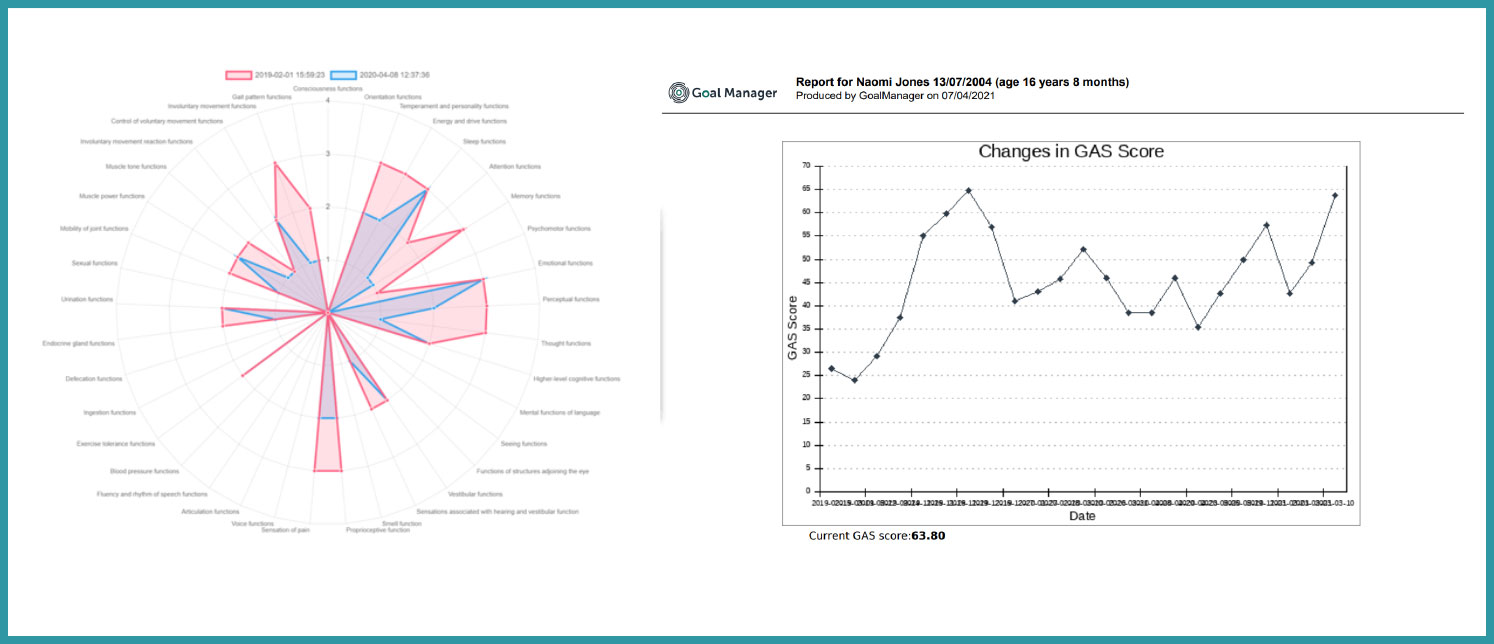
Monitor client and team progress in easy-to-read reports at the touch of a button.